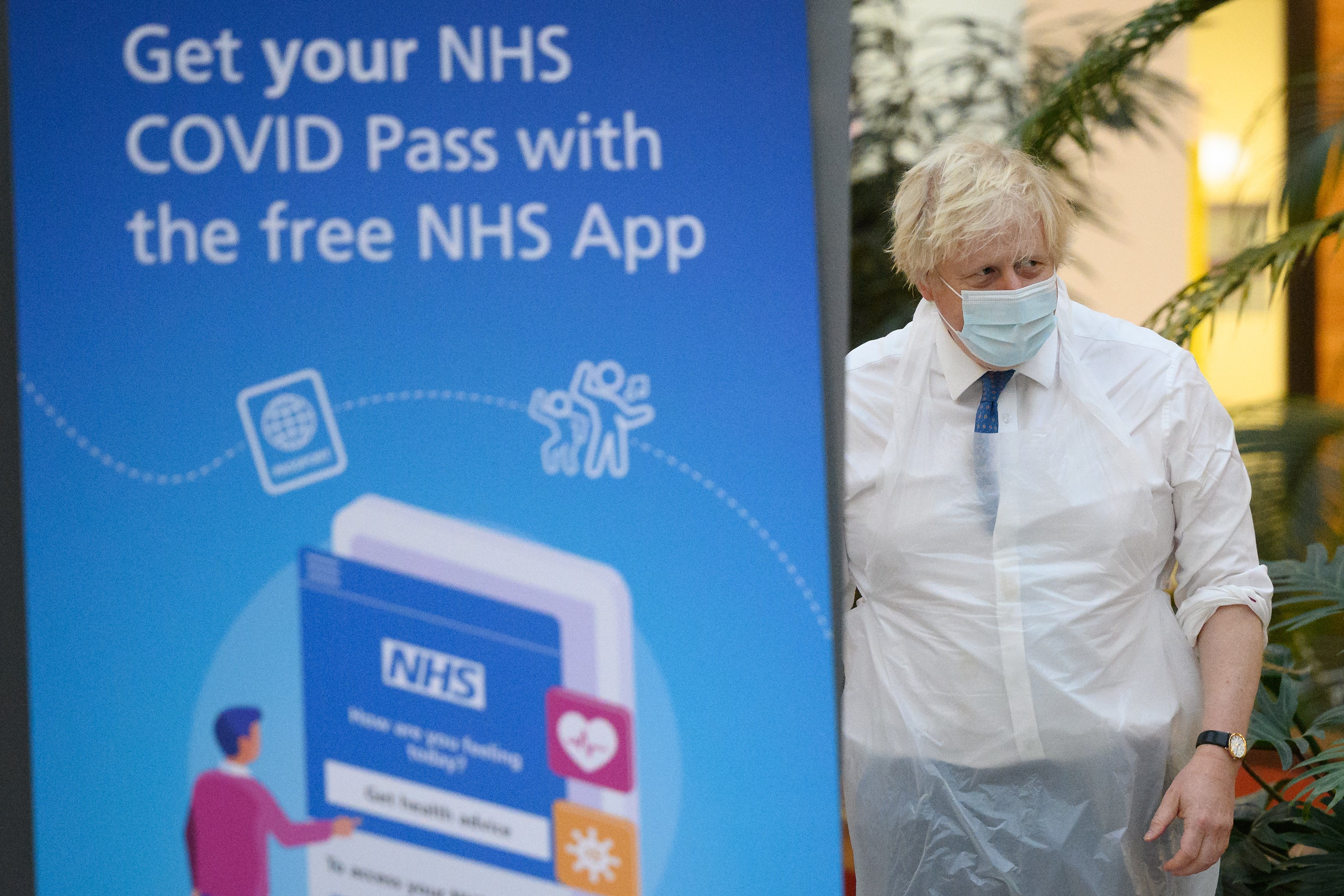More than a third of adults do not expect life to return to normal within a year
This is more than twice the proportion (18%) in December 2020, the Office for National Statistics said.

Your support helps us to tell the story
From reproductive rights to climate change to Big Tech, The Independent is on the ground when the story is developing. Whether it's investigating the financials of Elon Musk's pro-Trump PAC or producing our latest documentary, 'The A Word', which shines a light on the American women fighting for reproductive rights, we know how important it is to parse out the facts from the messaging.
At such a critical moment in US history, we need reporters on the ground. Your donation allows us to keep sending journalists to speak to both sides of the story.
The Independent is trusted by Americans across the entire political spectrum. And unlike many other quality news outlets, we choose not to lock Americans out of our reporting and analysis with paywalls. We believe quality journalism should be available to everyone, paid for by those who can afford it.
Your support makes all the difference.More than a third of adults do not believe life will return to normal within a year, figures show.
Some 39% of adults do not expect life to be back to normal for at least 12 months, according to the Office for National Statistics (ONS).
This is more than twice the proportion (18%) in December 2020.
About 7% expect life to return to normal in less than six months – down from 28% last December.
The ONS analysed responses from 3,276 adults in Britain between December 1 and 12 as part of its Opinions and Lifestyle survey on the social impacts of Covid-19.
Measures were introduced during this period in response to the rapidly spreading Omicron variant.
These include making face coverings mandatory in most indoor public areas, such as shops and transport, asking people to work from home where possible, and extending the booster programme to younger adults.
Across the UK, certain venues and events are now legally required to check that visitors over the age of 18 have received vaccine doses or have proof of a negative test in the last 48 hours.
The survey also asked about people’s plans for Christmas, with 63% saying they were planning to visit family and friends in their homes over the festive period.
Almost half (48%) said they planned to host family or friends in their homes, while 34% said they planned to meet with loved ones in restaurants, pubs, bars or cafes.
Some 80% said they will stay at home if they feel unwell to help reduce the spread of Covid-19.
Since the survey period, chief medical officer Professor Chris Whitty has urged people to consider cutting back socialising around Christmas due to the threat from the Omicron variant.
He told the public “don’t mix with people you don’t have to” at events that are not among the most important to them.
The survey found there has been an increase in the number of people who said they wore a face covering outside their home in the past seven days.
The proportion rose to 94%, up from 84% between November 18 and 28.
Almost half (47%) of adults said everyone or almost everyone was wearing a face covering while shopping (up from 19%) and 45% said the same for public transport (up from 21%).
The proportion of people who reported self-isolating in the past week rose slightly, from 4% in the previous survey period to 5%.
Measures for life satisfaction – the feeling that things done in life are worthwhile – and happiness all fell slightly, while anxiety increased somewhat.